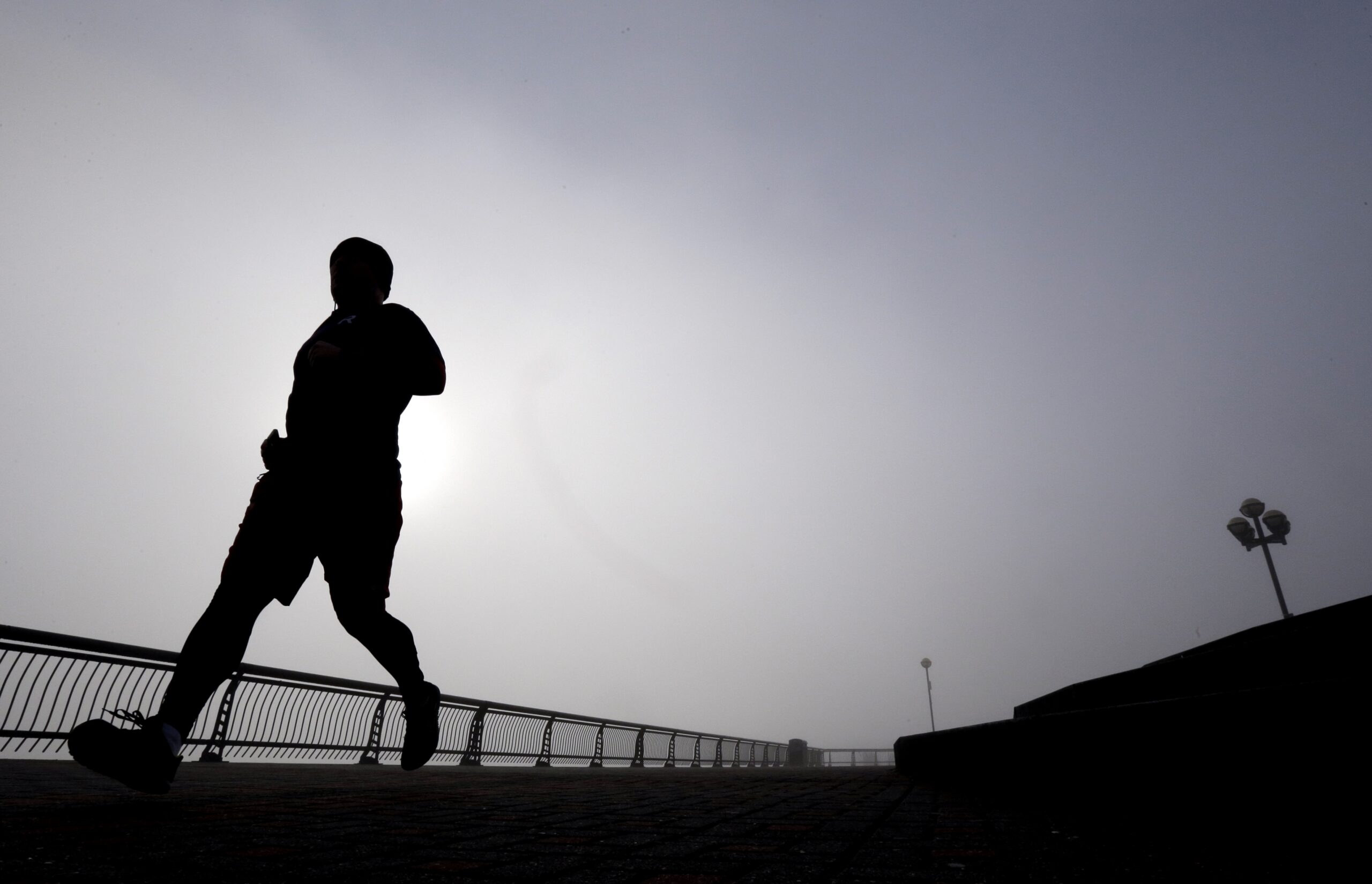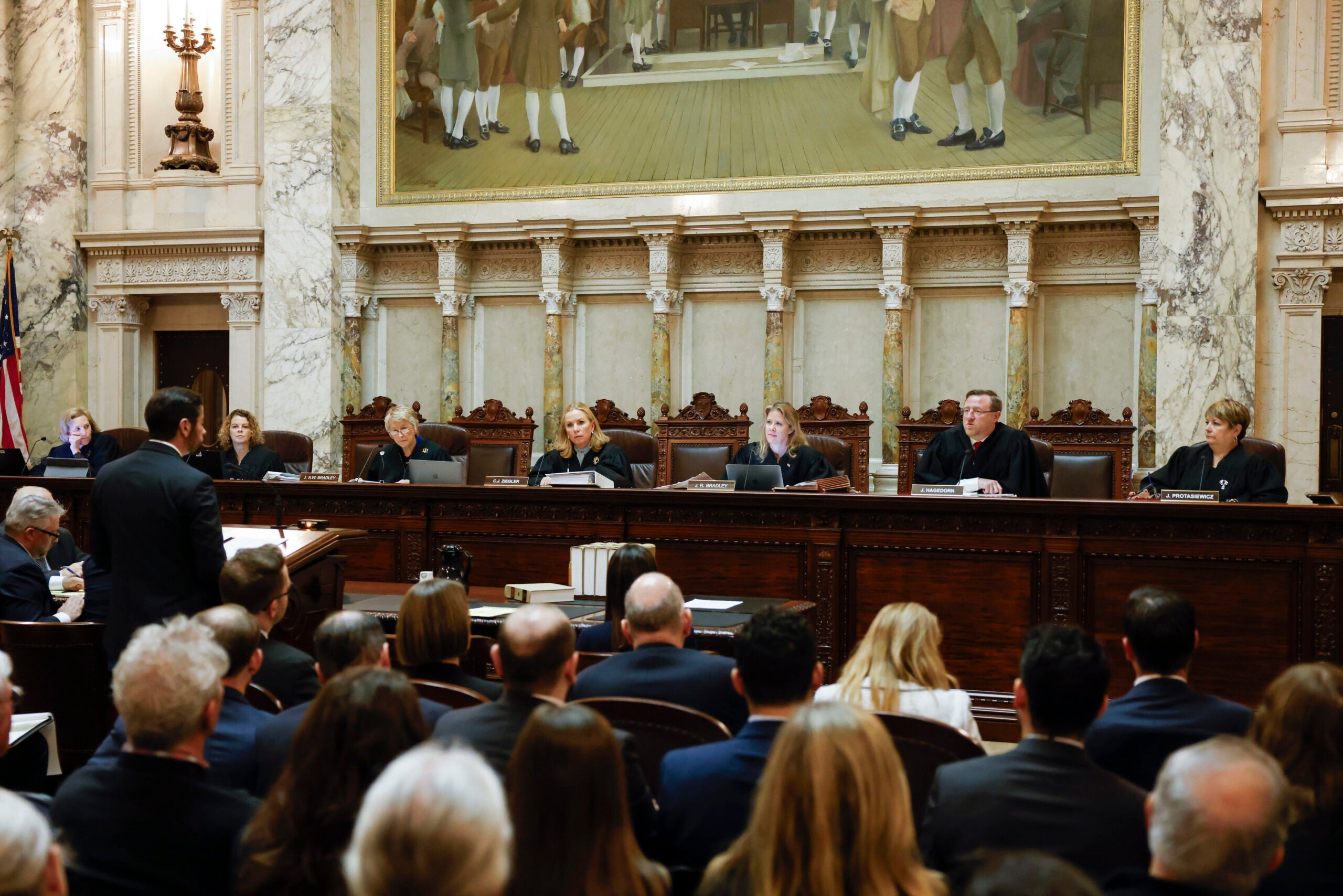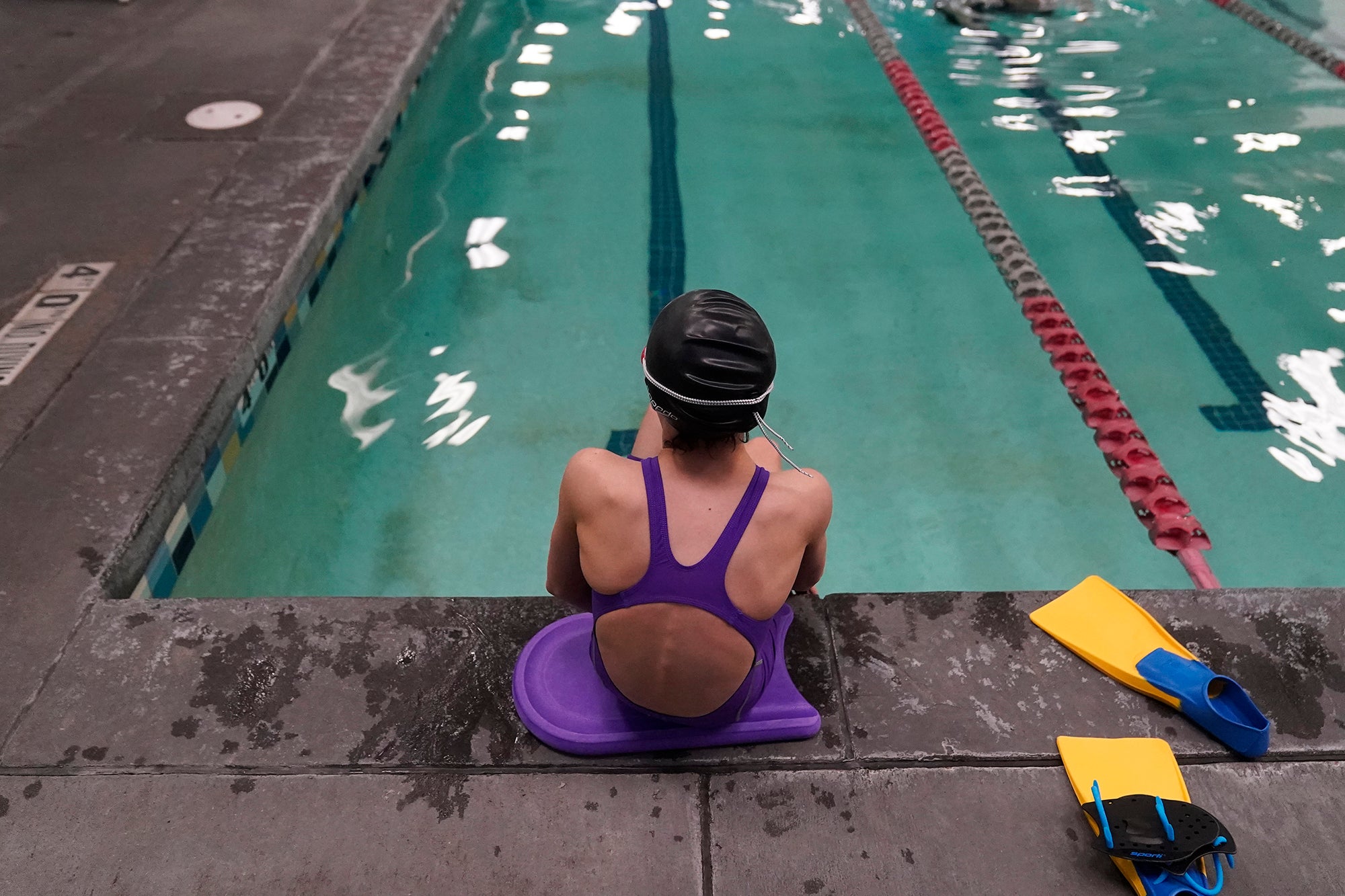The Wisconsin Interscholastic Athletic Association Board is reconsidering its recent decision to ban a Campbellsport high school track star from competing in varsity events.
The association, known as WIAA, ruled last week that senior Josh Onwunili was ineligible because his parents live in Ghana, Africa.
Josh attended Campbellsport High School his freshman year. He joined his parents in Africa for two years. They are missionaries in the country.
Stay informed on the latest news
Sign up for WPR’s email newsletter.
Josh returned to Campbellsport this year to prepare for college and continue his athletic training, said coach Derek Toshner.

Toshner understands WIAA transfer rules are in place to prevent schools from “stacking” the best players but said that is not the situation with Josh.
Toshner and Josh appealed his case.
They’ve given WIAA proof that Josh meets high school age requirements, that his mother still owns a house in Campbellsport and is moving back and that his father is unable to move back at this time because of an issue with his visa.
“We produced all that information, and then they still said it wasn’t sufficient,” Toshner said. “Whether Josh is successful at getting appealed or not, we’re trying to create a way for this not to happen with future kids.”
WIAA Spokesperson Todd Clark said it is always the organization’s intention to “assist our member schools review and validate the eligibility of student-athletes.”
Josh’s case not unique but getting attention
Unlike other students who have been deemed ineligible, Josh’s case has gotten significant attention.
On Wednesday, Sen. Duey Stroebel, R-Cedarburg, Rep. Ty Bodden, R- Hilbert and Rep. Robert Brooks, R-Saukville, sent a letter to the WIAA board asking them to reconsider their decision.
“The decision to exclude Josh from competition based on residency technicalities risks overlooking the fundamental spirit of high school sports to provide young athletes with the opportunity to showcase their abilities and character on a statewide stage,” the letter states.
“The rule in question, while designed to maintain fairness, in this case, appears to be an obstacle to fairness itself, denying an exceptional student-athlete a chance to compete based on bureaucratic constraints.”
Toshner said now that Josh’s story has become public, many other parents have come forward with similar stories.
Toshner himself, who has only been a coach for six years, has already dealt with a similar situation at Campbellsport.
That student’s parents were living in California. The student was living with his grandparents in Campbellsport for family reasons and he was deemed ineligible by WIAA to participate in track.
The student was a JV athlete and Toshner was a new coach, so he didn’t fight the rule.
But Josh’s case is different.
Josh recorded one of the fastest 100-meter sprints in state history recently at meet in La Crosse. He has college scholarship money on the line.
“He’s a salt of the earth kid, and he’ll be the first to tell you, this is about more than him, it’s about future kids and how the rules apply to them,” Toshner said. “And he’s got a 3.7 GPA, which is not always easy to come by. So he’s got a bright future ahead of him.”
Toshner said the pressure has made WIAA give Josh’s case another look.
The coach was told Wednesday WIAA is working with a lawyer to go over the documents to confirm Josh’s mom has moved back to the United States, they own a house in Campbellsport and his father is unable to come back.
Toshner is hoping to know something this week.
When asked if Josh’s case would get further review, Clark from WIAA said: “I can confirm the WIAA renders decisions on the membership’s Rules of Eligibility based upon information we have at that time. Our staff always considers new documentation — when presented — concerning eligibility matters.”
What is the WIAA?
WIAA is quasi-state agency, although it does not abide by state open meeting law.
The WIAA is governed by a board that includes 10 administrators from high schools and a representative from the Wisconsin Association of School Boards. The board must represent seven of the 11 geographical districts of the state, have “one gender representative, one minority and one non-public school representative.”
Republicans proposed a bill in January that would have required WIAA to comply with state open records laws, but it failed to gain momentum.
In February, a Waterford wrestler had his 2019 WIAA state individual wrestling title reinstated by the Wisconsin Court of Appeals following a dispute that began over unsportsmanlike conduct penalties. That ruling also found WIAA to be a “state actor,” which could reignite the debate over the agency’s right to privacy.
Wisconsin Public Radio, © Copyright 2025, Board of Regents of the University of Wisconsin System and Wisconsin Educational Communications Board.




